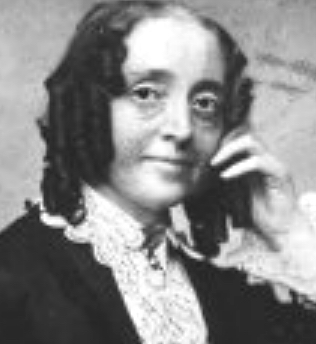January 13
Ernestine L. Rose

On this date in 1810, Ernestine Louise Rose, née Potowski, was born in a Jewish ghetto in Poland. As the only child of an Orthodox rabbi, she was “a rebel by the age of five.” The dedicated activist became 19th-century America’s most outspoken atheist and its first lobbyist for women’s rights. Rose championed the Married Women’s Property Act first introduced by freethinking Judge Thomas Hertell in the New York Legislature in 1836, which became a model law when enacted in 1848.
After moving from Poland to England in 1830, she married William Ella Rose, a jeweler and fellow Owenite. They moved to New York in 1836 and became U.S. citizens. Rose had the distinction of being barred as an atheist from the U.S. Capitol by its chaplain in 1854. Responding to one religious heckler who turned off the gas lights during her lecture in 1853, she brought down the house by quipping that “one of the true things we find in the bible, that some there are ‘who love darkness better than light.’ ”
Known as the “Queen of the Platform,” the ringletted woman’s rights activist was frequently harassed by minister-led mobs. Her best-known freethought speech, “A Defense of Atheism,” was delivered in 1861 and is reprinted in the anthology Women Without Superstition. Rose lectured widely for women’s rights, atheism and abolition, retiring to England near the end of her life. (D. 1892)
“It is an interesting and demonstrable fact that all children are Atheists, and were religion not inculcated into their minds they would remain so.”
— Rose, “A Defense of Atheism” speech (1861)
